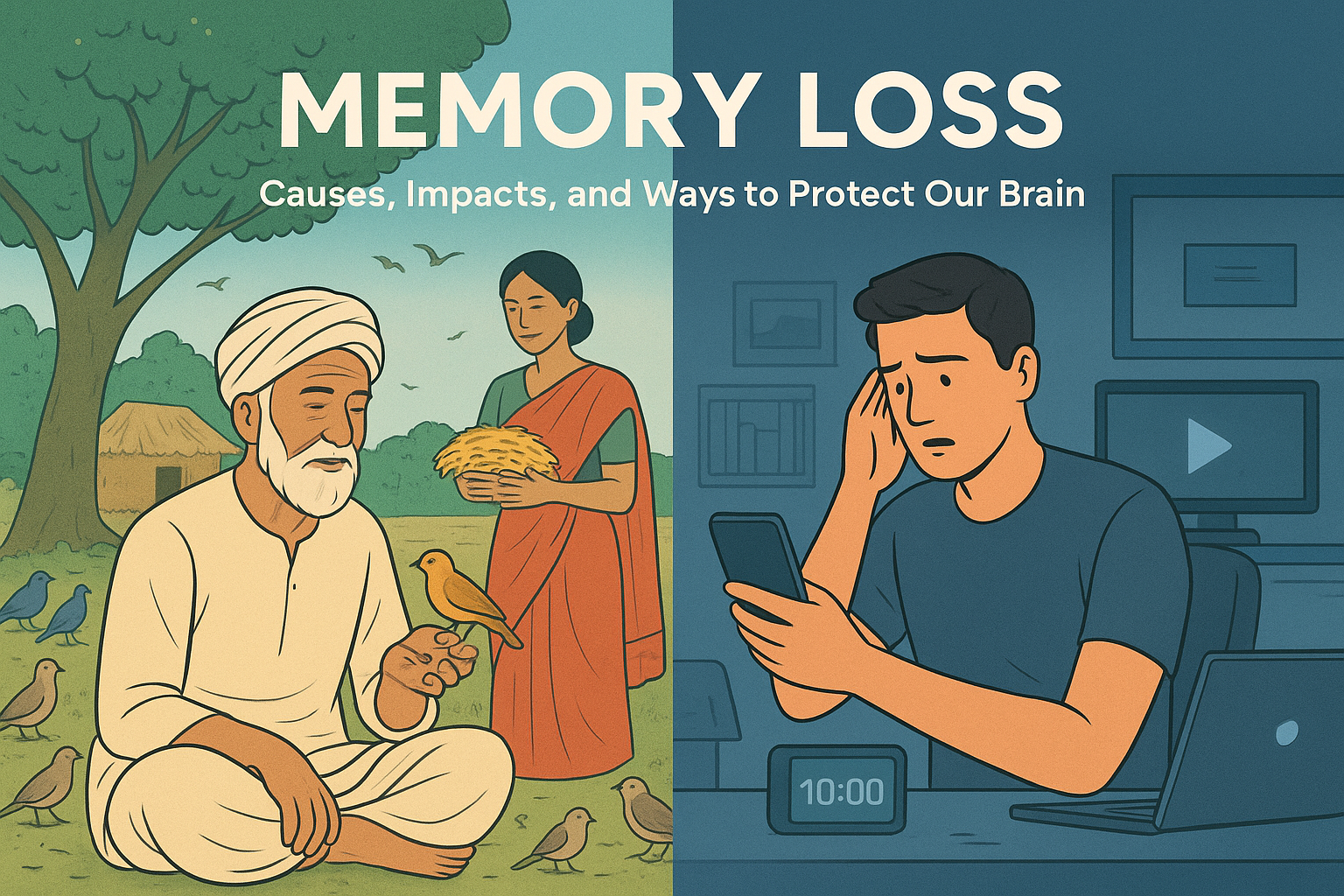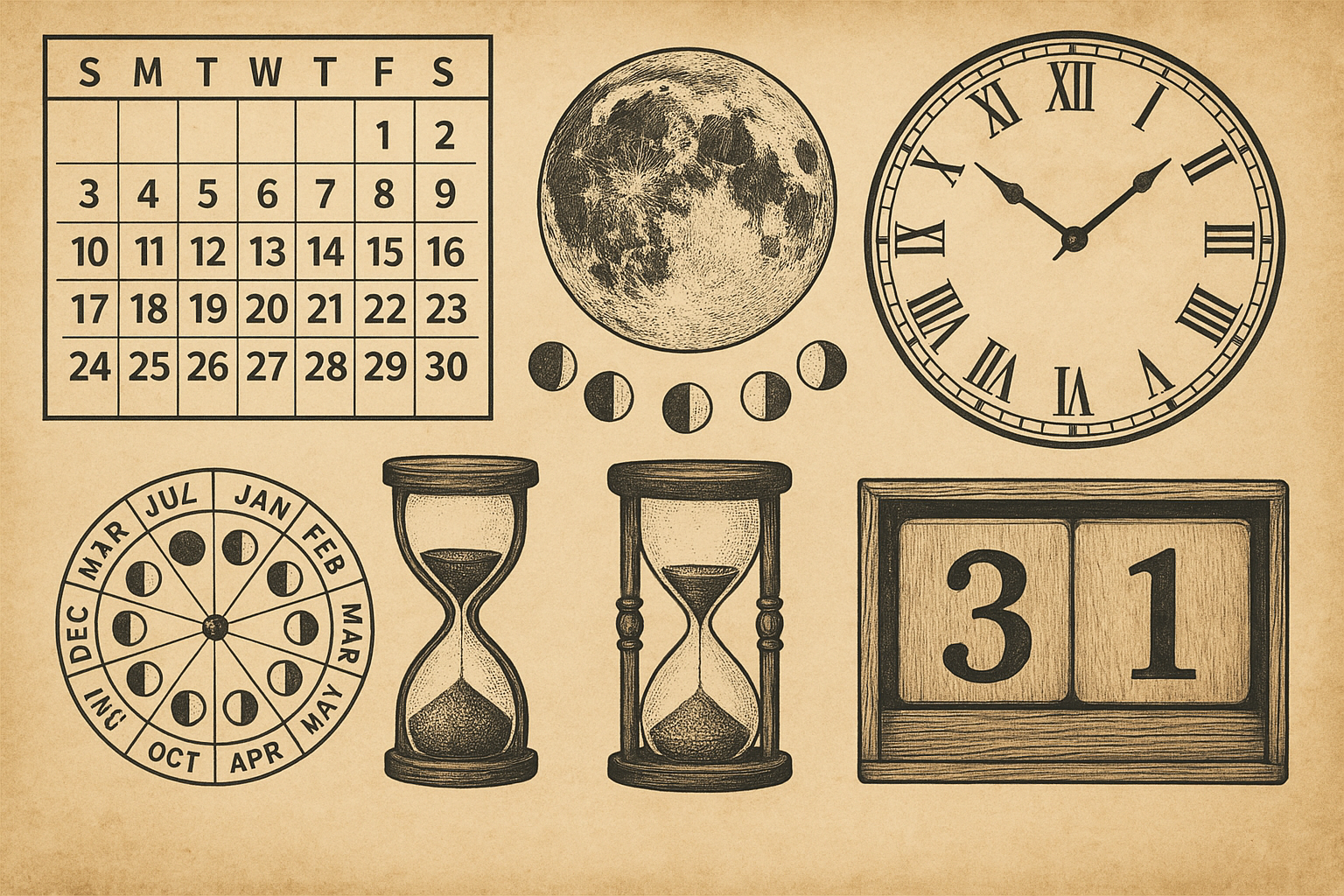Humanity, Nature and Harmony
Harmony, in its simplest sense, means goodwill – a state where every human being carries compassion, love, and empathy for others. It is not limited only to human-to-human relations, but extends to animals, plants, and the entire natural world. Unfortunately, in the present time, harmony seems to be slowly disappearing from our society.
People living under the same roof often engage in conflicts, jealousy, and anger instead of supporting one another. Even in villages, groups are formed with the intention of creating division among neighbors rather than building unity. In cities, relationships are often driven by money and selfish motives – “if you have money, your work will be done; if not, no one will care.” This transactional behavior erodes compassion and humanity.
Today, dishonesty, envy, and hatred are so deeply rooted in people’s hearts that even if someone speaks kindly, others often respond with suspicion or anger. The reasons for this moral decline are many – social media addiction, increasing financial pressure, unchecked desires, and the influence of corrupt behavior by some people in power. The list is so long that it is almost impossible to count every factor, yet each contributes to the breaking of harmony.
The Weakening of Trust
Consider a situation where a family seeks justice after facing a tragic loss, such as in high-profile crime cases. Their only wish is to get a fair trial and justice for their loved one. But often, authorities compromise their duty in exchange for money or personal gain. When those in power forget their responsibility, people lose faith in the system, laws, and regulations. This collapse of trust creates frustration and anger in society, further destroying harmony.
A similar example can be seen in educational systems and examinations. Students and teachers raise their voices, expecting fair action and reforms. But instead of addressing their concerns, many officials only attempt to protect themselves. This lack of accountability breaks the spirit of young people who are the future of humanity.
The Loss of Compassion Beyond Humans
Humanity is not only about how we treat one another but also about how we treat nature and animals. Sadly, human cruelty has reached a point where even innocent beings like trees and animals are not spared. A person holding a stick may hit a stray animal without reason, leaving it injured. That animal, once harmed, begins to fear every human with a stick and reacts with aggression. This cycle of violence, caused by our actions, damages the natural bond that should exist between humans and other living beings.
Harmony, therefore, is not just a moral value but a necessity for the survival of both humanity and nature. Without it, relationships weaken, societies collapse, and the environment suffers. If people cannot practice kindness towards each other, how can they be expected to protect the earth, forests, and animals that cannot speak for themselves?
A Call for Reflection
Before discussing solutions, it is important to pause and reflect: Why is harmony fading away? Why has humanity chosen competition over compassion, selfishness over empathy, and division over unity? Unless we explore these questions honestly, we cannot move toward a balanced and peaceful society.
Reasons for Disharmony in the Modern World
To understand why harmony is fading from human life, we must look carefully at the root causes. Disharmony is not born in a single day – it grows gradually when moral values, empathy, and awareness begin to decline. In the present age, there are several visible and invisible reasons that push people toward selfishness and division. Below are some of the most significant causes:
1. The Role of Social Media
Social media, while connecting millions across the globe, has also become a silent destroyer of peace and harmony. Instead of being a tool for knowledge, it has turned into a stage of comparison, showmanship, and negativity. People measure their worth not by their character, but by likes, followers, and comments.
For instance, a young student scrolling through endless glamorous posts may feel inferior about their simple lifestyle. This breeds jealousy and dissatisfaction. Moreover, online hate speech, trolling, and false news often create unnecessary conflict among people who may have never even met in real life. Social media amplifies differences instead of promoting unity, and this invisible wall of competition silently eats away harmony.
2. The Greed for Wealth and Power
Greed is perhaps one of the oldest enemies of harmony. In today’s world, it has only intensified. A person’s value is often judged by the size of their bank balance, the brand of clothes they wear, or the luxury of their home. This blind race for wealth and status has created a society where relationships are transactional. People help others only when there is personal gain involved.
Greed also leads to exploitation – of people, resources, and even nature. Forests are cut down to make way for businesses, rivers are polluted for industrial growth, and animals are killed for profit. In this chase for wealth, harmony between humans and nature is completely forgotten.
3. Corruption and Injustice
Corruption is one of the most dangerous poisons for any society. When those in power choose money over responsibility, harmony suffers at every level. Whether in education, law, or governance, corruption steals the trust of ordinary people. A citizen who cannot rely on the system for justice begins to feel helpless, and helplessness turns into anger.
This injustice is especially painful for the poor and powerless. A rich person can use money to bend rules, while a common man struggles for even basic rights. Such inequality creates frustration, resentment, and eventually disharmony. A society where rules are different for the powerful and the powerless can never achieve true harmony.
4. Lifestyle Changes and Over-Competition
Modern lifestyles, driven by technology and consumerism, have made people more restless than ever. From a very young age, children are pushed into competition – for grades, sports, jobs, and recognition. While healthy competition can encourage growth, excessive competition makes people insecure and envious. Instead of celebrating each other’s success, many secretly wish for the failure of others.
Urban lifestyles also promote isolation. Neighbors living side by side often do not even know each other’s names. People have little time for family, friends, or community because they are too busy running after targets and deadlines. The lack of real human connection creates emptiness, which no material achievement can fill.
5. Disconnection from Nature
Humanity was once deeply connected to nature – people lived close to forests, rivers, and fields, and respected every form of life. But in today’s world, that bond has been almost completely broken. A child growing up in a big city may never see the stars clearly due to pollution, may never climb a tree, or may never witness the beauty of a river in its pure form.
When we lose touch with nature, we also lose touch with simplicity, patience, and balance. Modern society treats nature as a resource to be consumed rather than a mother to be respected. This disconnection not only damages the environment but also weakens the inner peace of human beings, creating yet another layer of disharmony.
A Society at a Crossroads
All these reasons – social media obsession, greed, corruption, over-competition, and disconnection from nature – have pushed humanity to a dangerous point. On one side lies the possibility of rebuilding harmony through compassion, simplicity, and justice; on the other side lies chaos, distrust, and destruction. The choice we make today will decide the future of the coming generations.
Solutions & the Path to Rebuilding Harmony
After understanding why harmony is missing, the next question is: how can we restore it? Rebuilding harmony is possible, but it requires conscious effort at multiple levels—individual, family, society, and environment. True change begins with small actions but eventually leads to a ripple effect that transforms the entire world.
1. Education and Awareness
Education is the first and most powerful tool to cultivate harmony. But education must go beyond textbooks. Children need to be taught empathy, compassion, respect for life, and understanding of the environment. Schools and families together should encourage students to value honesty over shortcuts, kindness over competition, and cooperation over selfishness.
For instance, simple classroom activities like caring for a plant, helping a classmate, or volunteering in the community teach practical lessons in harmony. Knowledge without empathy cannot create balanced human beings; therefore, awareness about moral values and real-life responsibilities must become part of education.
2. Compassion and Respect in Daily Life
Compassion begins at home. Children learn values by observing their parents’ behavior. Parents who show love, patience, and understanding towards their children raise adults capable of empathy. Likewise, treating neighbors, colleagues, and strangers with respect and patience reinforces harmony at the societal level.
Small acts of kindness—helping a neighbor, listening without judgment, forgiving mistakes—may seem insignificant, but collectively they create a society rooted in trust and goodwill. When people practice compassion regularly, the cycle of anger and resentment gradually weakens.
3. Respecting Nature and All Living Beings
Humanity cannot exist in isolation from nature. Respect for trees, rivers, animals, and ecosystems is a key pillar of harmony. Protecting forests, planting trees, reducing pollution, and allowing animals to live freely are simple yet powerful ways to reconnect with nature.
Teaching children to observe, enjoy, and care for nature helps them internalize the principle of coexistence. When we recognize the intrinsic value of every life, humans, animals, and plants are treated as equals, fostering a natural balance in the world.
4. Justice and Accountability
Disharmony often arises when people feel wronged or ignored. Justice and fairness are essential for building trust within society. Governments, institutions, and individuals must take responsibility for their actions and maintain accountability. Even small steps, like reporting corruption, encouraging transparency, and supporting fair treatment for all, create confidence in systems and reduce anger and frustration.
When people see justice being served without bias, they are more likely to trust, cooperate, and live peacefully. Harmony cannot survive in a society where rules are selective and decisions are based on money or influence.
5. Spiritual Awareness and Inner Peace
Beyond education and social systems, inner peace is crucial. Spiritual awareness teaches people to control desires, overcome anger, and connect with the larger purpose of life. Meditation, reflection, and practicing gratitude help calm the mind and reduce harmful impulses.
Spiritual values such as truth, non-violence, and selflessness, which were emphasized in ancient scriptures, are still relevant today. They guide individuals to live harmoniously with themselves, other people, and nature. Even small daily practices, like speaking truthfully, helping the needy, and showing patience, can rebuild the moral fabric of society over time.
The Ripple Effect of Small Actions
It is easy to feel helpless thinking, “What difference can one person make?” However, every act of kindness, every tree planted, every fair decision, and every respectful conversation contributes to a ripple effect. As more people adopt these behaviors, society gradually moves toward harmony. One family practicing empathy can inspire their neighborhood; one school teaching compassion can influence thousands of children; one person protecting nature can spark awareness in a community.
Harmony is not an abstract concept—it is practical. It manifests in the way we raise our children, interact with our neighbors, treat animals, protect the environment, and ensure fairness in society. By combining education, compassion, respect for life, justice, and spiritual awareness, we can begin to heal the divisions that exist today.
Harmony Begins at Home and Within
True harmony begins at home. Families are the first schools of love, compassion, and respect. Parents play a critical role in shaping the character of their children. A child who experiences patience, care, and understanding at home is more likely to carry those values into society. Conversely, a child growing up amidst constant conflict, disrespect, or neglect may internalize anger, fear, or resentment, repeating those patterns in adulthood.
Marriage, another cornerstone of family life, is often misunderstood in modern society. True marriage is not merely a legal contract or a transactional arrangement; it is a life-long partnership built on equality, trust, and mutual respect. Partners must share joys, challenges, and responsibilities equally. When harmony exists in a marriage, it naturally extends to children, family relationships, and eventually the larger community.
Parents who actively engage with their children—listening, guiding, and loving without condition—create emotionally healthy individuals. These children learn empathy, respect, and cooperation, the very foundation of harmony. Similarly, children who honor and respect their parents strengthen intergenerational trust and understanding. This reciprocal love becomes the seed of societal harmony.
Extending Harmony to Society and Nature
When harmony begins at home, it naturally spreads outward. Respectful communication, fairness, and care at the family level inspire similar behavior in neighborhoods, workplaces, and schools. Communities with strong bonds and shared values are better equipped to handle challenges, support the vulnerable, and protect nature.
Harmony with nature is equally important. Every action, from planting trees to protecting animals and conserving water, reinforces the bond between humans and the environment. People must recognize that every life has intrinsic value, and that coexistence is essential for the survival of all species. Respecting nature is not optional—it is a moral responsibility and a source of inner peace.
The Power of Individual Action
Many people feel that one person cannot make a difference. Yet, history proves otherwise. Small acts—helping a neighbor, planting a tree, practicing fairness, teaching children empathy—can create ripple effects far beyond the individual. One person’s conscious effort to live harmoniously can influence a family, a community, and eventually society at large.
Harmony is a choice. Each individual has the power to transform their behavior and mindset. By practicing compassion, respecting all life forms, teaching values to the next generation, and embracing fairness and justice, we contribute to a more balanced world. Over time, these small steps compound, and the collective effort creates profound change.
Conclusion: A Call to Change
Humanity, nature, and harmony are interconnected. Disharmony within families, societies, or the environment ultimately reflects in the other areas as well. By nurturing love, respect, and empathy at home, we lay the foundation for a just and compassionate society. By protecting nature and all living beings, we maintain the balance that sustains life on Earth.
Each individual has a role to play. Even if one person starts, the ripple can reach countless others. The journey toward harmony is gradual, but every step matters. Respect your parents and elders, nurture your children with love and guidance, show kindness to every living being, and act with fairness and integrity in society. Small actions create large impact; one day, harmony will not only exist in your home but across communities, countries, and the world.
Remember: change begins within, and when individuals embrace harmony, the world gradually transforms into a place where humanity, nature, and compassion coexist beautifully.










